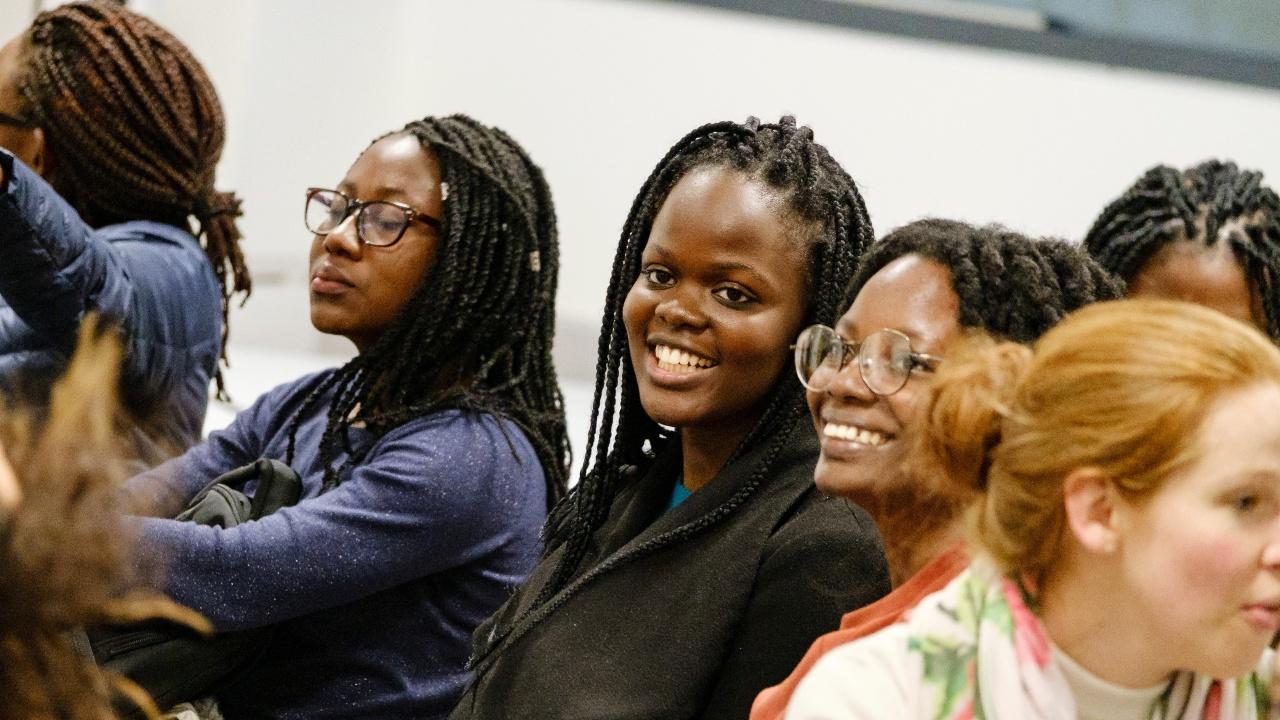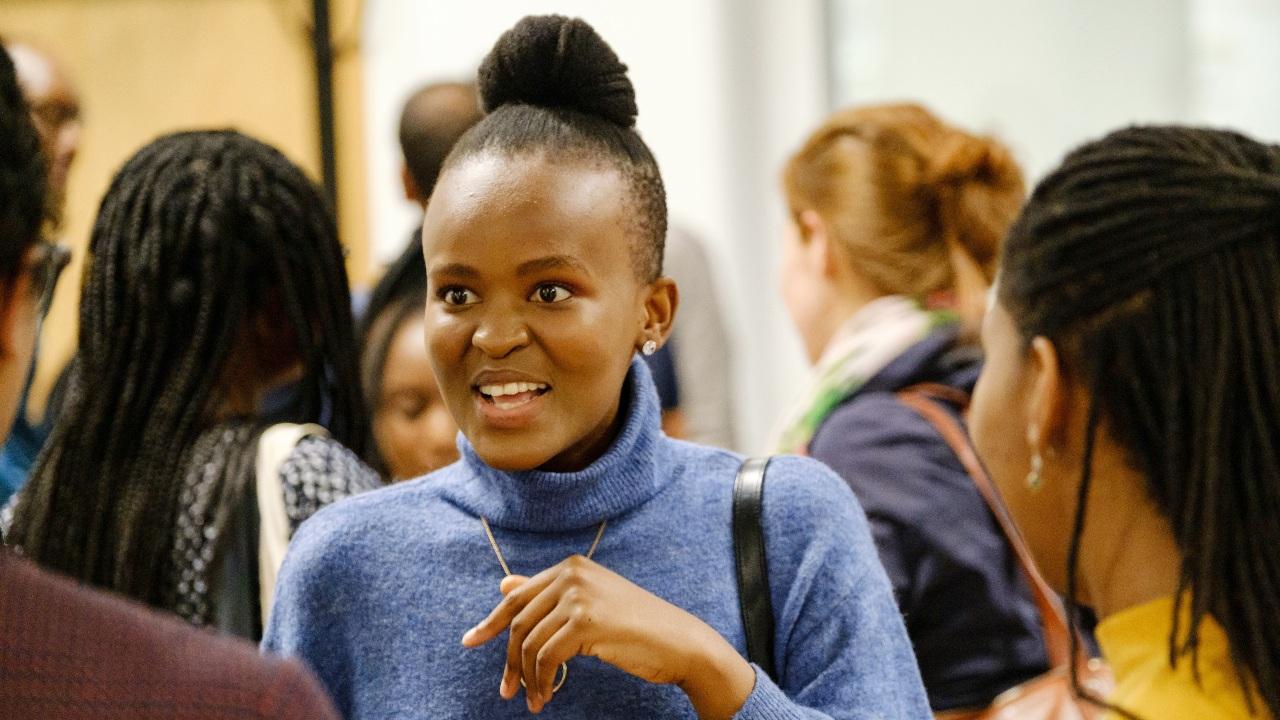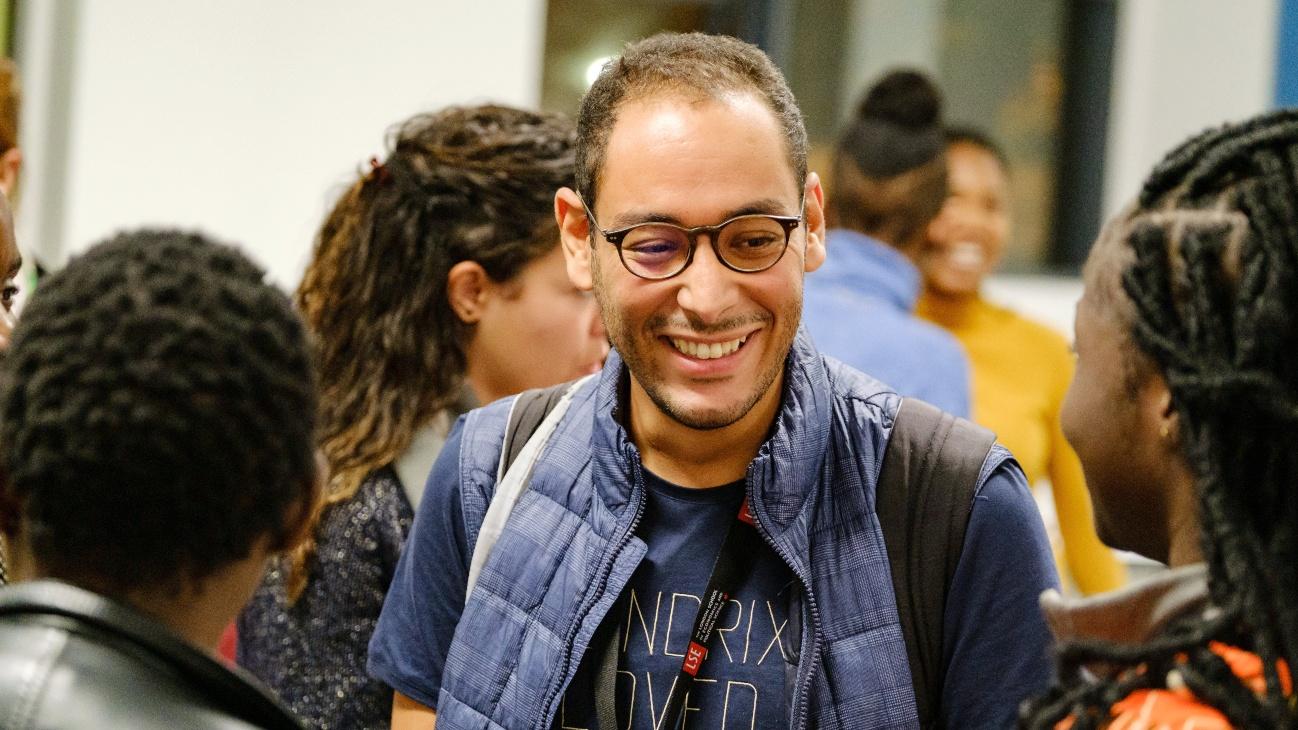What role can universities play in supporting African students as they transition from higher education into careers on the African continent? We explore this process by looking closely at LSE processes and challenges.
This post is the fifth in the series Pathways to Success for Africans in Higher Education, bringing awareness to the journey that African nationals experience when navigating tertiary education, and its importance for the continent’s development.
As an African student begins their career journey after obtaining a university degree, their initial experience is often shaped by the institution at which they did their studies. There is a strong connection between tertiary education and an individual’s career path. For an institution like LSE, a student’s degree is often focused on providing students with a deeper understanding and knowledge of a specific discipline in the social sciences in an attempt to develop the student as a scholar. It is the role of the student to use the knowledge and skills they develop through their degree to achieve their personal and professional goals. However, African students who attend institutions abroad often face challenges transitioning back to the continent and finding opportunities that support a ‘successful’ career on the continent, and it is important for these students to use the resources available to them to reach their career goals.
How can university support your career trajectory?
Along with developing the knowledge and skills that will support African students in their profession, the values and culture of a university can expose new interests they may not have known they had. For an institution like LSE, there is an international focus and a global presence that can greatly influence a student’s experience. As a top social sciences institution, it provides students with an opportunity to engage deeply with issues occurring globally and to participate in critical dialogues with people from different parts of the world. This global reputation and perspective at LSE is especially attractive to employers that work beyond national borders.
This global approach is particularly important for the African context. African students serve as ambassadors, building relationships and engaging with peers in a way that provides a more comprehensive and authentic view of the countries they are coming from and of the African continent overall. On top of this, as Africa approaches a new decade, strategic partnerships and collaborations will need to occur internationally in order to address the needs of the region. African leaders need to have a global perspective when working toward targets like those set by the African Union’s Agenda 2063 or the UN’s Sustainable Development Goals, and to identify innovative business opportunities that will ultimately benefit the continent. Many globally focused organisations recruit from international universities like the LSE and are often looking for skilled individuals who have personal, cultural and local knowledge of African contexts, while maintaining a global perspective, which their degree helps to provide.
What resources can students access to support their career journey?
Every higher education institution has their own approach for supporting students as they transition into their careers. At LSE, there are a variety of resources that students can utilise while studying or after graduating to support their career journey.
It could be helpful for students to take some time to better understand what they want and the options available to them or explore some areas of interest. COVID-19 restrictions have prevented some face to face events taking place, but more online events and webinars are available, which has arguably made it easier to learn about certain sectors, the work organisations do and the opportunities available.
Students can also get experience to help develop their professional skills. LSE has strong relationships with international organisations who offer internships, graduate roles and permanent positions for current students and alumni. Through LSE Careers, students can access a range of services to support them, including access to the vacancy board, CV advice and practice interviews.
Students should also start building a strong network of professional contacts that can be utilised along their career journey. Tools like LinkedIn can be used to develop a network, create a personal brand and access new career opportunities. It is important that networks are full of genuine relationships, and connections made at university or in the workplace can be invaluable later in life. Seeking a professional mentor, reaching out to successful people in sectors of interest or getting advice through informal conversations are also good ways of building organic relationships with professionals. Joining LSE’s African alumni associations or reaching out to alumni in the region is a great way for African students to do this.
If students are looking to apply to a particular organisation, they could speak with someone who works there to get a better understanding of what it’s like. Most companies include a contact who is happy to discuss the role or answer questions on their job description. Students should not be afraid to reach out for more information if this is the case. These conversations will be valuable in applications but can also help grow personal networks.
What does a successful career look like?
The definition of success is dependent on each individual and their life circumstances. This year’s Institute of Student Employers report titled ‘What do students want?’ identified the job aspects that most appeal to students.
Being treated fairly by the organisation, having access to training and development, enjoying a good work-life balance and doing work that aligns with individuals’ values are all important for students when deciding which career direction to take. None of these, however, are mutually exclusive. Other values included working for an environmentally sustainable organisation and alongside like-minded people; these factors were found to be more important to students than earning a high salary and all play into an individual’s definition of success.
In the African context, success is also often shaped by factors such as familial or community expectations, rapidly changing landscapes in the African job market, realities of the political or social context or traditional approaches to work that can shape different industries.
LSE case studies after graduation
African students can take different career paths after studying at LSE and our alum have gone onto have successful careers on the continent. Sakina and Madvee are two examples.
Sakina Badamasuiy
Sakina Badamasuiy joined McKinsey & Company as a Consultant in Nigeria after graduating, which gave her the opportunity to move back to her home country and better understand the business and political environment. This led to her joining the World Bank, where she designed Nigeria’s national identity strategy before starting her own consulting company working with SMEs and grassroots organisations. Sakina’s time at LSE helped prepare her for some of the roles she has gone into.
‘I attended career fairs, one of which I was able to secure my first internship through. I also utilised the LSE Careers services in helping me edit my CV and prepare for interviews.’
‘I secured a summer job during the final year of my undergraduate studies by speaking with a former Chief Economist at the World Bank who came to give a talk at the LSE – he recommended me to his colleague in Nigeria! Finally, through the LSE Africa Summit that I founded while at the LSE, I built a strong network of people who I still leverage today whenever I am seeking out new opportunities, advice or just a different perspective.’
Madvee Muthu
Madvee Muthu is currently consulting for the African Development Bank as a gender expert. Trained as an economist with a specialisation in Social Policy and Development, her career path has taken her all over the African continent, working for different organisations and on projects across multiple sectors. Coming from Mauritius, she returned home following her LSE degree where she was recruited as a ‘Service to Mauritius’ intern, a program created to bring new talent to work within the Mauritian government. She started out in an analytical role at the Ministry of Finance and Economic Development. Accessing an entry position that was aligned to her academic training was a true lever for her career path. She leveraged that experience to get her next job at an international organisation. Since then, she has worked for UNDP, UNECA and the African Development Bank among other organisations. Although she has experience in many of these large organisations, she provides advice for future African graduates:
‘If you want to harness your full potential, big organisations may not be the best place to start. Join them later in your career as a senior person, when your role comes with some degree of influence over ideas and processes. Young people should use their energy and their thirst to innovate and create in organisations (often small ones) that allow them to do so and are receptive to new ways of doing things. This is how they can achieve the greatest impact. Resist conforming. Be different!’
‘It’s easier to take risks when you are young with little to no financial commitments. Do it! Be a risk taker.’
‘Once you’ve managed to enter an organisation/industry, getting the next job becomes easier. If you are interested in African development, you must be prepared to live and move to different countries, some with better living conditions than others. As you gain in experience and seniority, you likely will have the ability to choose your preferred location. Be flexible!’
‘LSE has a great Careers department that really prepares you through CV training and mock interviews. They provide guidance but do not do the work for you, so you learn through the process. Take advantage of this resource. Be proactive!’
An African student’s pathway to success through higher education, especially when studying abroad in the global North, requires students to navigate different processes, build supportive networks and develop a clear vision for their career and future. These actions can help individuals achieve success as they define it for themselves. By using the knowledge, skills and networks they gain from their university education, they also have the potential to have a positive impact in their field, in their communities and on the African continent overall. Offices like LSE Careers and programmes like the Africa Engagement Programme work to support these students on their pathway, working to build an ecosystem of change makers invested in the future of Africa.
Photo by Sincerely Media on Unsplash.





